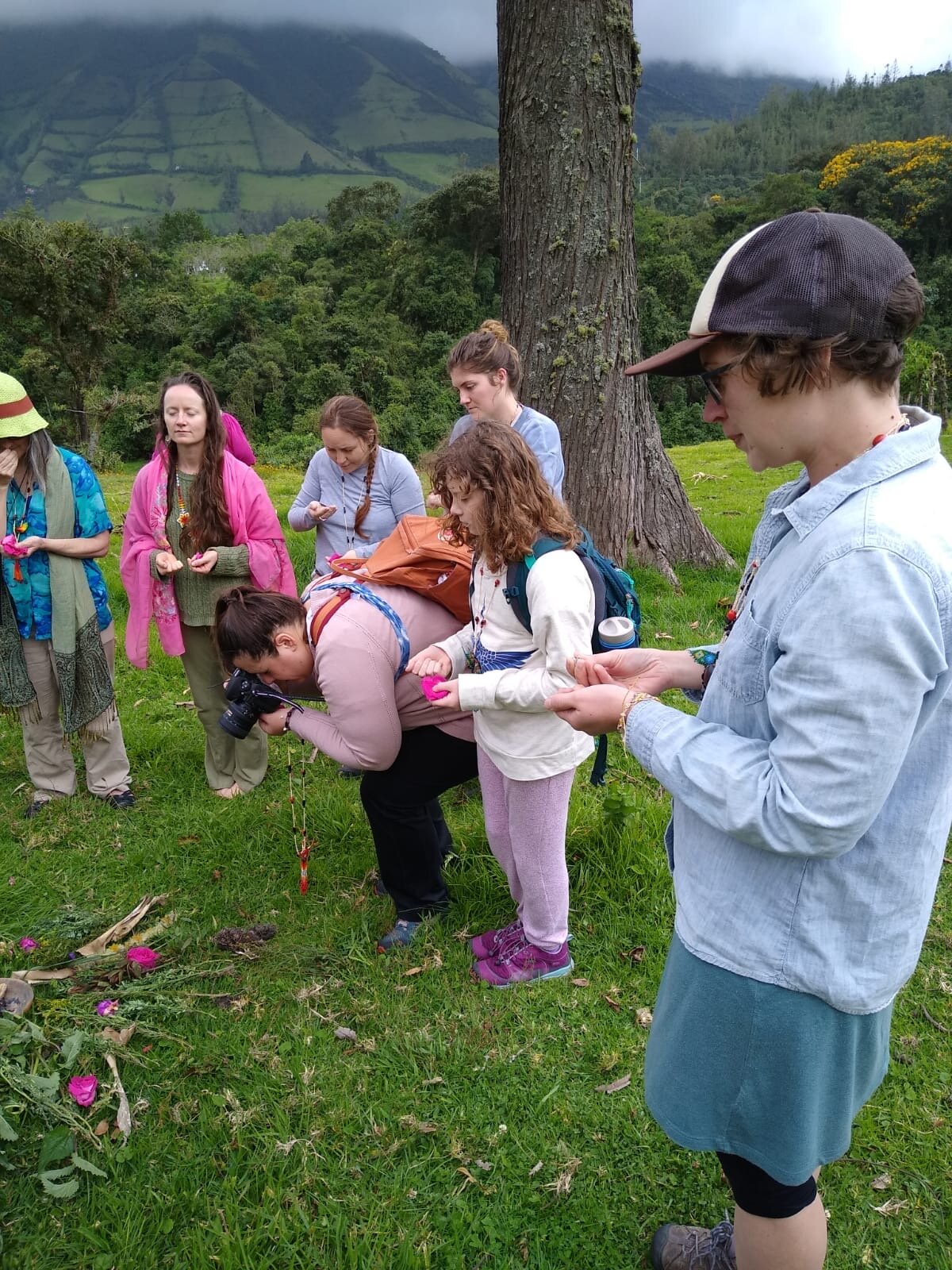"Create new data."
Last week, I was with Rocio Alarcón in Ecuador.
She spent the week guiding us through both ecological and shamanic ways of working with hummingbirds. We spent many hours in ceremony on her family's land and getting to know different species of these birds.
There was one thing Rocio kept coming back to that really resonated with me:
"Create new data."
She spoke of shamanic practice as a science, one that is living, one that insists that we actively participate in and contribute it.
So often, we approach herbal and spiritual wisdom as if it's set in stone, canon of the past that cannot be questioned or altered.
This comes from a place of respect: we respect the wisdom of our ancestors and others' ancestors so thoroughly that we don't think to add our own wisdom into the mix.
And while that respect is valid, and I highly value learning from elders, the process doesn't need to stop there.
The knowledge and insight that we gain from sitting at the feet of elders and in the classrooms of teachers is not meant to be stagnant. It's not meant to become an untouchable canon -- that's how dogma is formed.
I don't do dogma in my practice. I'm guessing that you don't, either.
The learning we absorb from teachers and elders can be a foundation, a jumping-off point for you to have your own incredible, valid, and insightful experiences in the world of plant spirits, herbs, and shamanic practice.
From that foundation, you get to create your own new data.
I love learning from teachers, and I love taking that learning one step further, usually by sitting quietly with plants, working with them over a period of years, or going on a shamanic journey with them (or all three, repeatedly, throughout my life).
As I do this, I'm not just learning about a plant, I'm learning about how the plant relates to me. I'm not just learning about a plant -- I'm learning about our relationship.
Yes, a plant will have a certain set of characteristics and personality traits. But plants don't exist in a vacuum: they exist in a constantly fluctuating relationship with the world around them. That includes you.
Think about yourself: you have a personality and character traits. But your personality presents in different ways depending on the setting you're in and the people you're interacting with. You are constantly showing yourself in different ways depending on the context. You relate differently to different people.
It's the same with plants. They are infinitely complex, and can present themselves with infinite variation depending on their context.
Does that sound overwhelming to you? How can you get to know a plant that is constantly changing?
The same way to get to know a human -- gradually, over a long period of time, or perhaps by sharing a short but intense experience (like backpacking in Europe together). And a mutual connection is absolutely necessary.
There are many, many plants to get to know, and there are so many different contexts and relationship out there. Which is why Rocio insisted that it was our responsibility to add new data to the spiritual understanding.
Photo by Rogelio Viteri
So how can you create new data?
Here are some ideas:
Sit at the base of a tree (yes, you can do this in winter). Slowly introduce yourself, and ask how it's doing. Relax, and listen.
Take a flower essence every day for two weeks. Journal about the experience.
Go on a journey to meet the spirit of a plant who has a big presence in your life (who are you drinking in your daily tea?)
The main reason that the Apothecary Garden is open on Saturdays in the summer is so that you can have a quiet space in which you can really connect with some of your herby friends. I believe that this is so, so important, and I am so, so excited for the garden to open again in a few months.
In the meantime, the plants are all around you, even now, even in February.
So go create some new data ;)
Let me know what you find.


